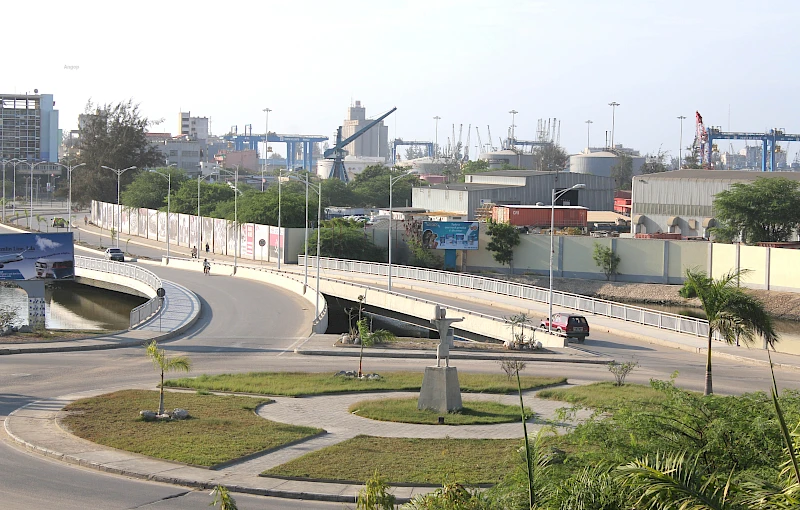Benguela - The future Benguela External Ring Road (CEB), which will cost 517 million US dollars, could attract new businesses and investments in order to stimulate local economic growth, according to economist Henrique Pascoal.
President of the Republic, João Lourenço gave green light to the project and the contract consists of building a new road that will facilitate the circulation of heavy goods vehicles between Benguela and Lobito.
The road will make it possible to preserve the asphalt pavement in the cities of Benguela and Lobito against the heavy wear and tear caused by the intense traffic of large lorries coming from South Africa and Namibia.
Speaking to ANGOP on Tuesday, economist Henrique Pascoal believes that this new road infrastructure has the potential to become a real milestone in the region's economic development.
"The construction of this infrastructure represents a significant opportunity for the socio-economic development of our province," he commented, noting that effective management and a sustainable approach were essential when carrying out the project.
The professor from the Benguela Higher Polytechnic Institute (ISPB) also foresees a significant increase in direct and indirect employment during the construction phase and after the ring road is completed, given the new commercial and industrial developments that may spring up along it.
Henrique Pascoal emphasises that this infrastructure will serve as a crucial support for investments in the Lobito Corridor, a "fast track" for transporting minerals from Katanga, in the Democratic Congo.
In this sense, he maintains that the future Benguela ring road can help improve logistics and connectivity between different parts of the province and other regions of the country, facilitating the transport of goods and people.
According to him, the Benguela ring road is expected to make roads more efficient and reduce travelling times between cities, which in turn will contribute to a better quality of life for everyone.
Attracting investment
Henrique Pascoal, a modern and efficient infrastructure such as the future outer ring road could make Benguela even more attractive to investors, both national and international.
According to the economist, attracting investment will be an incentive to set up new companies and industries, boosting the creation of more job opportunities.
He draws attention to the fact that the realisation of this large-scale project entails high financial costs and could increase public indebtedness.
This is why he argued that it is essential to ensure transparent management and rigorous supervision, to guarantee that resources are well utilised and objectives achieved.
With the focus on sustainable development for the well-being of future generations, he also emphasised the need to mitigate the potential adverse environmental impacts that can arise from the construction of new infrastructures.
Reducing asymmetries
According to the economist, with improved infrastructure, there is great potential to reduce regional inequalities, offering better development opportunities in previously less accessible areas.
He also says that the investment in infrastructure and mobility will also have a direct impact on the quality of life of Benguela's inhabitants, such as better transport conditions and faster access to services.
On the other hand, he recognises that direct agreements in mega-projects can bring speed and flexibility in execution, reducing bureaucracy, although he warned of possible negative consequences.
Specifically, he mentions a lack of transparency, high costs, lower quality work, favouring large companies over small and medium-sized enterprises (SMEs), and increased risks of delays and failures.
Against this backdrop, he suggests strict supervision, independent audits and a balance between direct adjustments and competitive bidding processes.
This, argues the economist, will ensure that projects are carried out efficiently, on budget and on time. JH/CRB/DAN/DOJ























